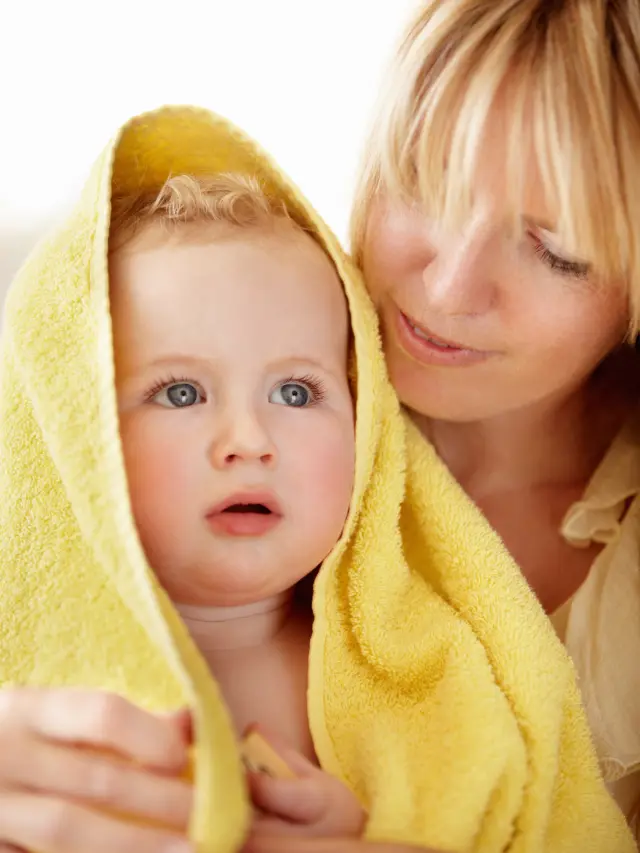How to take care of baby in winter season, as the winter season approaches, parents are often faced with the challenge of ensuring their little ones stay warm and healthy. The cold weather can be harsh on babies, making it crucial to know how to take care of a baby in the winter season. In this blog post, we’ll provide you with seven valuable tips to help you navigate the cold months and keep your baby safe and comfortable. From dressing your baby in appropriate winter attire to maintaining a cozy environment, we’ve got you covered.
How to Take Care of Baby in Winter Season
During the winter season, prioritize your baby’s well-being by dressing them in layers, and covering their head, hands, and feet. Use a humidifier to combat dry air, moisturize their skin regularly, and opt for breathable fabrics. Maintain a comfortable indoor temperature and avoid crowded places during flu season. For personalized advice, consult with a pediatrician on how to take care of baby in winter season.

Dressing Your Baby for the Winter
How to take care of baby in winter season is a crucial concern for parents. One of the most critical aspects of baby care in the winter season is dressing your little one appropriately. The cold weather can pose various challenges to your baby’s comfort and health, so ensuring they are dressed right is essential.
- Layer Up: Dress your baby in layers to trap warmth. Start with a soft, moisture-wicking base layer, followed by a thicker insulating layer, and finish with a cozy, waterproof outer layer. Ensure your baby’s clothing is breathable to avoid overheating.
- Hat and Mittens: Always cover your baby’s head with a hat and their tiny hands with mittens. Much of a baby’s body heat is lost through the head, making a hat essential to keep them warm.
- Booties and Socks: Invest in warm booties or soft, thick socks to keep your baby’s feet snug. Make sure the socks are not too tight to allow proper circulation.
Indoor Comfort
Creating a comfortable indoor environment is crucial to your baby’s well-being during the winter season. To ensure your baby stays warm and healthy during the colder months, here are some essential tips on how to take care of baby in winter season:
- Maintain the Right Temperature: The ideal room temperature for your baby is around 68-72°F (20-22°C). Use a room thermometer to monitor the temperature, and ensure the room is not too hot or too cold.
- Use a Humidifier: Heated indoor air can be dry and harsh on your baby’s delicate skin. Use a humidifier in the nursery to maintain proper moisture levels, which will help prevent skin dryness and congestion.
Bathing and Hygiene
Keeping your baby clean and hygienic during the winter season is essential for their comfort and health. The cold weather can present unique challenges for infant care, but with the right precautions and practices, you can ensure your baby stays safe and cozy throughout the winter months. How to take care of baby in winter season:
- Reduce Bath Frequency: While regular baths are necessary for cleanliness, avoid bathing your baby too frequently in the winter or during the rainy season. Bathing every two to three days is generally sufficient. Over-bathing can strip their skin of essential oils and make it more susceptible to dryness and irritation. It’s essential to know how to take care of baby in rainy season, as their delicate skin requires special attention.
- Choose Gentle Products: opt for mild and hypoallergenic baby products that won’t strip your baby’s skin of natural oils. Use a moisturizing baby wash and follow up with a gentle baby lotion to keep their skin hydrated.
Outdoor Safety
Taking your baby outside during the winter season requires special care to ensure they are protected from the cold and wet weather. Here are some essential tips on how to take care of baby in winter season:
- Time It Right: If you plan to go outside, choose the warmest part of the day and try to avoid extremely cold and windy conditions. Keep outdoor activities brief, especially for younger infants.
- Use a Weather-Appropriate Stroller Cover: Invest in a weather shield for your stroller to shield your baby from cold winds and rain. Ensure the cover has proper ventilation to avoid condensation.
- Avoid Overheating: While it’s crucial to keep your baby warm, especially when dealing with the challenges of how to take care of baby in rainy season, it’s equally important not to over-bundle them. Overheating can be as harmful as being too cold. Check your baby’s comfort by feeling their neck or back to ensure they are not too hot.
Conclusion
when it comes to taking care of your baby in the winter season, it’s essential to pay extra attention to detail. Following these tips on how to take care of baby in winter season, such as dressing your baby in appropriate layers and maintaining the right indoor environment, will go a long way in ensuring your little one stays cozy and comfortable throughout the colder months. However, it’s important to keep in mind that every baby is unique, so it’s crucial to be attentive to their individual needs and adjust your care routine accordingly.
Also, Read Childrens Hospital in Chennai.





